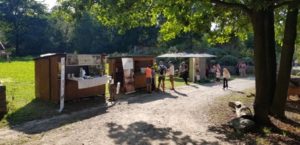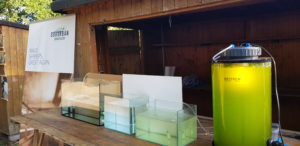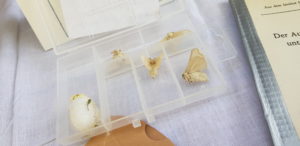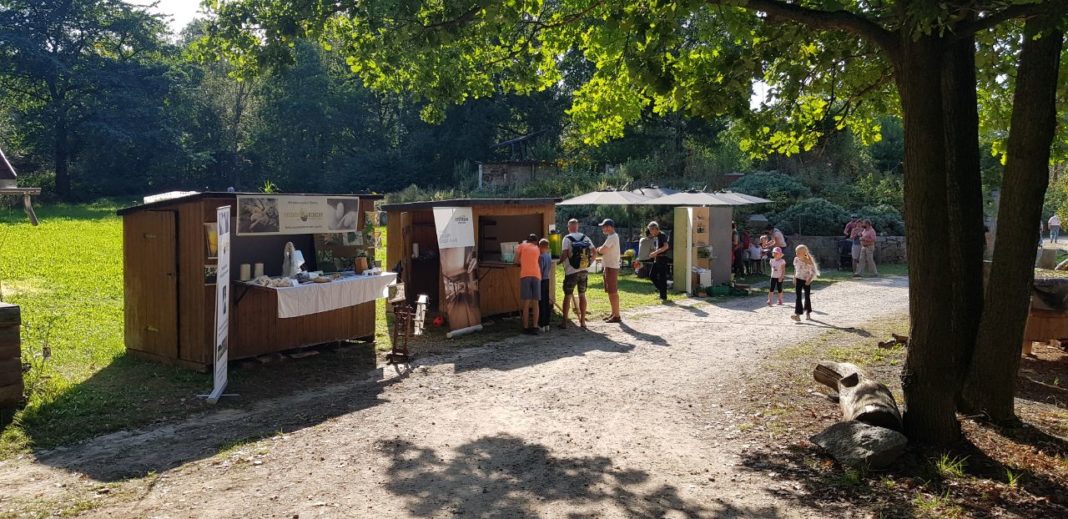How can the out-migrate of young adults from rural areas be stopped? The European Commission sees a rural bioeconomy as a possible solution, together with entrepreneurs conscious of the situation in these areas. This is why it has now launched the Startup Village initiative, an invitation to „country outing“. By Dr. Evelyn Reinmuth, Head of Bioeconomy Office at the University of Hohenheim, Germany.
Rural areas in Europe have been overtaken by the effects of globalisation and urbanisation in recent decades and are now lagging behind in development. Especially young adults out-migrate to cities where they attend higher education institutions and transfer to businesses offering attractive wages. This leaves the rural areas with a declining population that is also aging[1].

Highly demanded: entrepreneurs with rural knowledge
Bioeconomy research has so far not only developed many concepts to make rural areas more resilient to the challenges of our time such as climate change, food security, and energy demand[2]. It has also clearly shown that future entire circular, sustainable economies can only be built up with rural areas as their key backbone. The food and biomass needed in the future have always been sourced in this area, and the science-based know-how, technology but also financial resources should finally also come (back) to these areas.
 Thus what is in great demand for the future are entrepreneurs with this rural knowledge or background and with this can develop new products, processes, and procedures that can improve existing cultivation and utilisation practices towards a cascading, circular system.
Thus what is in great demand for the future are entrepreneurs with this rural knowledge or background and with this can develop new products, processes, and procedures that can improve existing cultivation and utilisation practices towards a cascading, circular system.
Innovations are key
The European Commission has taken up results from a multi-stakeholder consultation, including innovators, and now implements appropriate supportive measures with its new programme „European Startup Village“. To address these complex challenges associated with the rural development trap[3] and the desired empowerment by 2040. Startup-driven innovations are considered a key element. Innovative entrepreneurs are encouraged to provide effective solutions to tackle issues in rural areas by recognizing location specifics and working in collaboration with a local municipality to form a „Startup Village community“.
Huge support for the Startup Village initiative
Networks of startups and entrepreneurs committed to a certain topic can cover a larger area. Those entrepreneurs combine science-based knowledge with transformative skills, both of which they often acquired at higher education institutions (HEIs). The European Commission sees HEIs as key actors in supporting the Startup Village Initiative and thus, in July 2022, six university alliances have been invited to define their role in supporting the Startup Village initiative.  These alliances joined forces under the guidance of the European Bioeconomy University Alliance (EBU). The consortium consists of EU3DRES2 (Engaged and Entrepreneurial European University as Driver for European Smart and Sustainable Regions), UniGreen (UNIgreen European University), Eut+ (European University of Technology), EU Green (European Universities Alliance for Sustainability: Responsible Growth, Inclusive Education and Environment), and INVEST (Innovations of Regional Sustainability: European University Alliance).
These alliances joined forces under the guidance of the European Bioeconomy University Alliance (EBU). The consortium consists of EU3DRES2 (Engaged and Entrepreneurial European University as Driver for European Smart and Sustainable Regions), UniGreen (UNIgreen European University), Eut+ (European University of Technology), EU Green (European Universities Alliance for Sustainability: Responsible Growth, Inclusive Education and Environment), and INVEST (Innovations of Regional Sustainability: European University Alliance).
Universities are willing to follow concrete actions
As a result of their joint work, a vision statement was formulated, which is to show the support of the alliances and the 44 HEIs across Europe they are representing could agree on regardless of their type of institution, size, or level of resources. The vision statement was presented to Mariya Gabriel, Commissioner for Innovation, Research, Culture, Education, and Youth at the European Commission on 6 September 2022 at „Startup Olé“ in Salamanca, Spain. This is one of the biggest tech-startup ecosystem events in Europe.
 The University Alliances contributing to this vision statement express their support for the Startup Village Initiative of the European Commission, as manifested in the New European Research and Innovation Agenda (NEIA).
The University Alliances contributing to this vision statement express their support for the Startup Village Initiative of the European Commission, as manifested in the New European Research and Innovation Agenda (NEIA).
We agree that universities are key actors in supporting the achievement of more deep tech innovations as expressed in the NEIA. Based on its individual strengths and capabilities, each University Alliance is willing to contribute accordingly to the group effort that aims to pursue the provision of the following concrete actions:
- open up experimental facilities and spaces for startups
- strengthen the innovation ecosystem within and around the institutions and find the best ways to engage local communities
- connect innovative regions through the alliances’ networks
- ensure development and mobility of deep tech technology talent within Europe
- promote inclusion and diversity – female entrepreneurship in particular and attract global talent through attractive and inclusive education environments
- all of this should be based on the promotion of future-oriented interdisciplinary, transdisciplinary, and entrepreneurship skills
We, the University Alliances, will foster the exchange amongst our newly established alliance network that we have built. Through continuous and fruitful communication, we will raise awareness for the specifics of the regions across Europe. In doing so, we aim to be more responsive to the needs of the regions across Europe. That way, our member universities can more effectively address the most pressing societal and economic challenges through one of the most powerful means – knowledge.
Together we will pave the way for a smart, creative, and entrepreneurial society.
Driving innovation in the economy and society
The vision statement reflects the key elements of the New European Research and Innovation Agenda (NEIA), which aims to foster deep tech innovations and address the most pressing issues of our time together with related societal challenges. Deep tech innovations are „rooted in cutting edge science, technology, and engineering, often combining advances in the physical, biological and digital spheres and with the potential to deliver transformative solutions in the face of global challenges.
 The deep tech innovations that are emerging from a growing cohort of innovative startups in the EU have the potential to drive innovation across the economy and society. This can in turn transform the EU’s business landscape and associated markets and help address the most pressing societal challenges, including achieving the UN Sustainable Development Goals.[4]“
The deep tech innovations that are emerging from a growing cohort of innovative startups in the EU have the potential to drive innovation across the economy and society. This can in turn transform the EU’s business landscape and associated markets and help address the most pressing societal challenges, including achieving the UN Sustainable Development Goals.[4]“
How to join this „country outing“
The definition of deep tech innovations very well reflects the nature of many innovations from the field of bioeconomy, which is why in particular bioeconomy entrepreneurs are invited to show their support to the Startup Village initiative. This can be done for example by submitting a pledge, which is a concrete activity to build or support a startup village. The form for the pledge can be found on the website
- https://joint-research-centre.ec.europa.eu/scientific-activities-z/european-startup-village-forum_en
for the Startup Village Forum, a platform hosted by the Joint Research Center (JRC) that displays all the activities related to the Startup Village initiative. The six university alliances, additionally to their vision statement, founded the Startup Village Hub, which is their combined concrete activity to support the Startup Villages and already was active on various occasions, such as the EU Research and Innovations days.
Save the date
On 28.2.2023, the next Startup Village Forum will take place in Brussels, a great opportunity for bioeconomy startups to present their idea of how to contribute to the long-term vision of the European Commission for the Rural Areas.
[1] Interreg Central Europe, 2019b. Report on the Strategies to Link Rural Areas to European and National Transport Networks. D.T 1.3.5. Interreg Central Europe, Lille.
[2] Lewandowski, I., Gaudet, N., Lask, J., Maier, J., Tchouga, B., Vargas-Carpintero, R. (2018). Context. In: Lewandowski, I. (eds) Bioeconomy. Springer, Cham. https://doi.org/10.1007/978-3-319-68152-8_2
[3] Diemer, A., Iammarino, S., Rodríguez-Pose, A, Storper, M. (2022): The Regional Development Trap in Europe, Economic Geography, DOI: 10.1080/00130095.2022.2080655
[4] European Commission. Communication from The Commission to The European Parliament, The Council, The European Economic and Social Committee and The Committee of the Regions. A New European Innovation Agenda. COM/2022/332 final. Available 05/07/2022, Brussels. Link: https://eur-lex.europa.eu/legal-content/EN/TXT/?uri=CELEX:52022DC0332
Autor/Autorin

Dr Evelyn Reinmuth
Dr. Evelyn Reinmuth is the head of Bioeconomy Office at the University of Hohenheim which is the operating unit of the Chief Bioeconomy Officer at the University of Hohenheim. The Bioeconomy Office Hohenheim is the contact point for the European Bioeconomy University Alliance and coordinates the Startup Village Hub of the European University Alliances.


